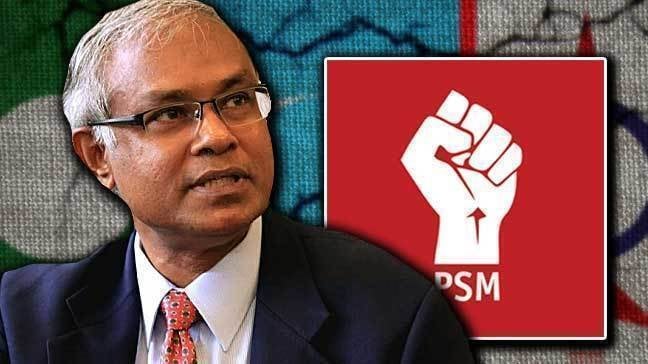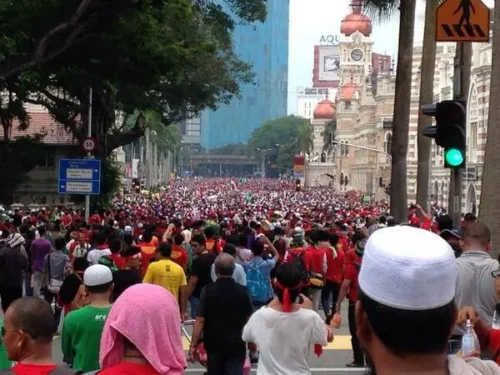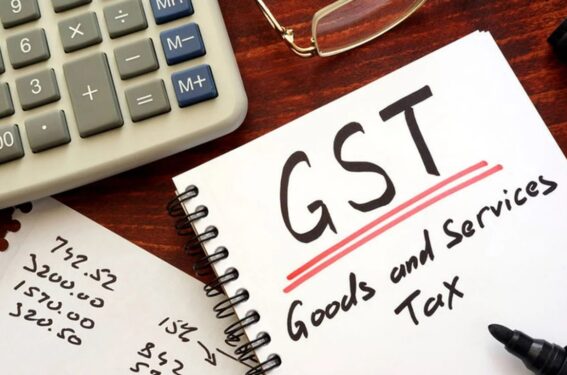RECENTLY, a spate of announcements and opinion pieces have surfaced in the mainstream media supporting the reintroduction of the goods and services tax (GST).
The GST was repealed in June 2018.
But once again, this option is being touted as the most sensible and responsible thing to do given the dire circumstances. The Federal government’s deficit has ballooned to about RM100 bil per year. And total federal debt (excluding contingent liabilities) has soared to RM1.2 tril.
Proponents of the GST argue this consumption tax will cut the government’s deficit. They also believe this tax will convince investors that the government is being fiscally prudent and so result in more investments flowing into the country.
But Parti Sosialis Malaysia (PSM) disagrees. We campaigned strongly against the GST in 2011-2013 because it is a regressive tax. Nothing that has happened over the past 10 years alters this fact.

For the poorer sectors of society who spend almost all their income, a 6% GST rate consumes 6% of their income. For the richest layers of society who save or invest half of their income, a 6% GST rate only consumes 3% of their income.
So, consumption taxes like the GST affect the poor more than the richer layers of society. That is why it is called a regressive tax.
Government policymakers should consider the following realities.
Unfair wealth distribution
One of the biggest challenges Malaysia faces is that it is unable to share the growing wealth of the nation fairly.
Our gross domestic product (GDP) has grown 23 times in real terms (ie after factoring inflation) over the past 50 years.
But the median wages of factory workers in real terms is only 1.4 times what it was 50 years ago.
Falling corporation tax rates
Government revenue has dropped from about 27% of GDP in the 1980s to 13% of GDP now.
This is due to the over-liberalisation of the global financial architecture (reinforced by various ‘free trade agreements’ [FTAs]). It has forced desperate governments around the world to cut their corporation taxes so that they can retain investment capital within their countries.
Malaysia too has cut its rate of corporation tax from 40% of profits in the mid-1980s to 24% now. It is in competition with Vietnam and Thailand, both of which are taxing companies 19% of profits.
But remember, this race-to-the-bottom in corporate tax rates is not ordained from above. It is certainly man-made – and by short-sighted men at that! Being man-made, it can be unmade.
Lower-income groups hardest hit
The lopsided distribution of Malaysia’s national income is not some abstract theoretical concept. It has a profound impact on low and middle-income families, most of whom are drowning in debt. Many are forced to work overtime or take on extra work to make ends meet.
This contributes to stress within the family and malnutrition among the children. Health department statistics reveal that close to 20% of Malaysian children below the age of five are stunted. This means they are well short of the expected height for children their age.

Isn’t 20% shocking for a nation that prides itself as standing on the threshold of being a developed nation? Given this, any policy that reduces the disposable income of the low and middle-income groups must be rejected.
Rich fail to pay taxes
More and more people around the world are realising that the failure of the richest individuals and companies to pay their share of taxes is the key reason the social safety net is fraying in many countries.
This failure also explains why we are unable to commit enough resources to mitigate climate change and switch to renewable energy more quickly.
The global minimum 15% tax on large multinational corporations to be implemented in 2024 reflects this awareness and concern.
We in Malaysia should take advantage of this realisation by suggesting to our ASEAN neighbours that we in this regional grouping need to halt this ridiculous race-to-the-bottom in corporation taxes.

The people who have chosen this government have a right to expect the government to manage the economy wisely and fairly.
The hoarding of national income by billionaires and wealthy companies has led to budget deficits and soaring national debt.
So, a responsible government ought to tackle this root cause of its deficits and debt. It should refrain from resorting to the GST to squeeze an extra RM30 bil from the over-burdened lower-income groups.
The right thing to do now is to plan to gradually raise the share of national income going to the low and middle-income groups and to the government.
Re-introducing the GST should not even be considered! – Sept 18, 2023
Former Singai Siput MP from 2008 to 2018, Dr Michael Jeyakumar Devaraj is chairman of Parti Sosialis Malaysia (PSM). His opinion piece first appeared in the ALIRAN website.
The views expressed are solely of the author and do not necessarily reflect those of Focus Malaysia.









